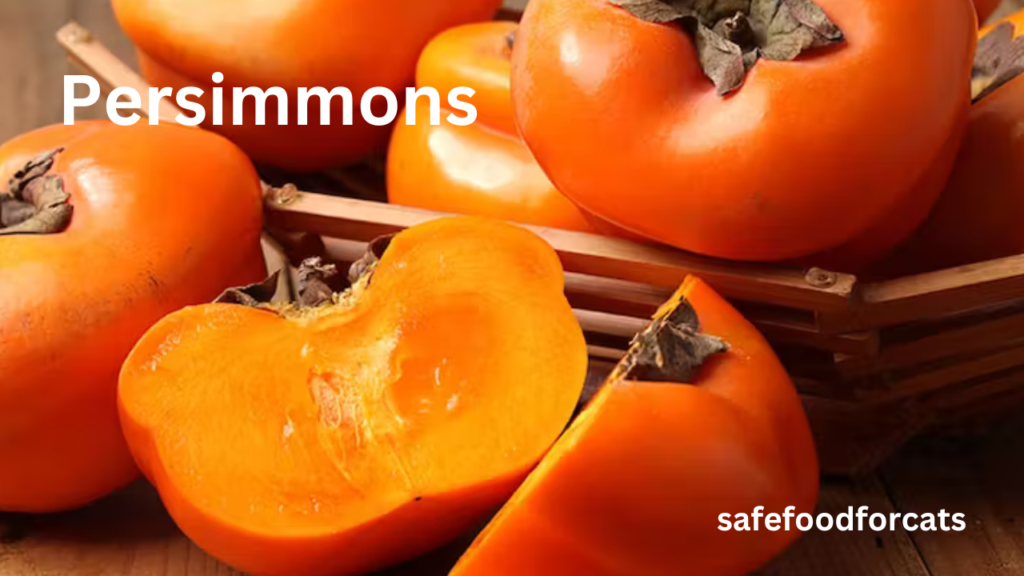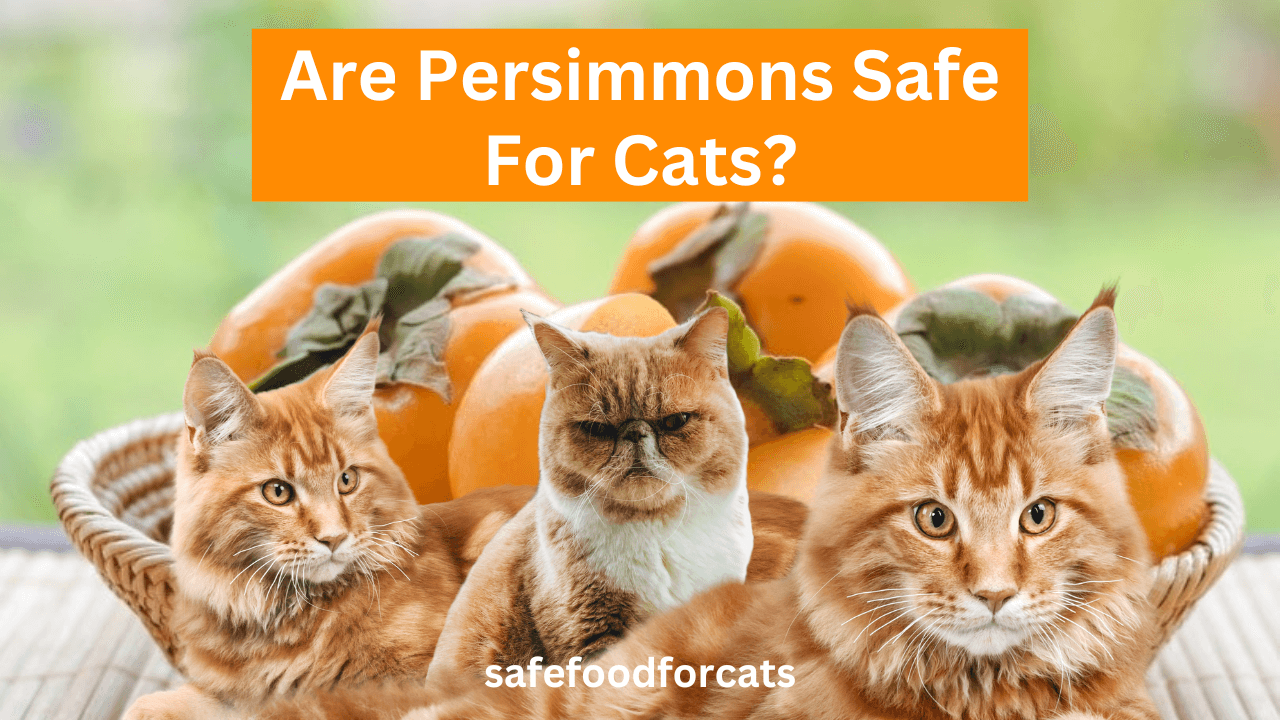Unveiling the Truth About Feeding Persimmons to Felines
Persimmons, with their vibrant hue and unique texture, are a beloved fruit enjoyed by many. As a cat owner, it’s natural to wonder if persimmons are safe for your feline companion. Let’s delve into the world of persimmons and explore whether they are a suitable treat for your cat.
Understanding Cat Nutrition
Cats are obligate carnivores, a classification that underscores their biological need for animal-based proteins. Unlike humans, cats lack certain enzymes crucial for effectively digesting plant matter. Their digestive systems are optimized to process proteins from animal sources, and they derive the majority of their nutrition from such sources in the wild.
Given cats’ carnivorous nature, incorporating plant-based foods into their diet requires careful consideration. While plants themselves might not be inherently toxic to cats, excessive consumption of plant material can lead to digestive disturbances and nutritional imbalances.
The Safety of Persimmons for Cats
The good news for cat owners who enjoy persimmons is that these fruits are generally safe for feline consumption. Persimmons themselves are not toxic to cats and can serve as a source of essential nutrients when offered in controlled amounts.
However, this doesn’t imply that you should introduce persimmons into your cat’s diet without caution. As with any new food, moderation is key. Feeding your cat small, appropriate portions of persimmons can offer dietary variety without jeopardizing their well-being.

Potential Risks and Precautions
Although persimmons are generally safe, it’s important to be mindful of potential risks associated with specific parts of the fruit. Persimmon seeds and their containers contain cyanide, which can be highly toxic to cats if ingested in large amounts. Responsible cat owners should ensure that seeds and any potential choking hazards are removed before presenting persimmons to their feline companions.
Safe Fruit Consumption for Cats
When it comes to feeding fruits to your cat, it’s paramount to follow best practices to ensure their safety and well-being. Here are some tips to consider:
1. Remove Seeds and Pits: Always remove seeds and pits from fruits before offering them to your cat. These parts can pose choking hazards and contain toxins that are harmful to cats.
2. Size Matters: To prevent choking, cut fruits into small, manageable pieces. This not only reduces the risk of choking but also makes it easier for your cat to chew and digest the treat.
3. Beware of Toxic Fruits: Some fruits, such as grapes and citrus fruits, should be strictly avoided. Grapes and raisins, in particular, can lead to kidney failure in cats and should never be included in their diet.
4. Consult a Veterinarian: Before introducing new foods to your cat’s diet, consult your veterinarian. They can offer guidance on suitable treats and portion sizes based on your cat’s specific nutritional needs.
The Verdict on Persimmons for Cats
In conclusion, persimmons can indeed be a safe and nutritious treat for your cat when approached with moderation and careful consideration. The captivating color and intriguing texture of persimmons might pique your feline friend’s curiosity, providing a unique sensory experience.
It’s important to remember that while persimmons are not toxic, other fruits like grapes and citrus fruits can be hazardous for cats. Prioritize your cat’s well-being by seeking advice from your veterinarian before making any changes to their diet.
By prioritizing your cat’s health, conducting thorough research, and practicing moderation, you can confidently offer safe and delightful treats like persimmons to your feline companion. This ensures that your furry friend can enjoy a diverse and enriching diet while staying healthy and content.

